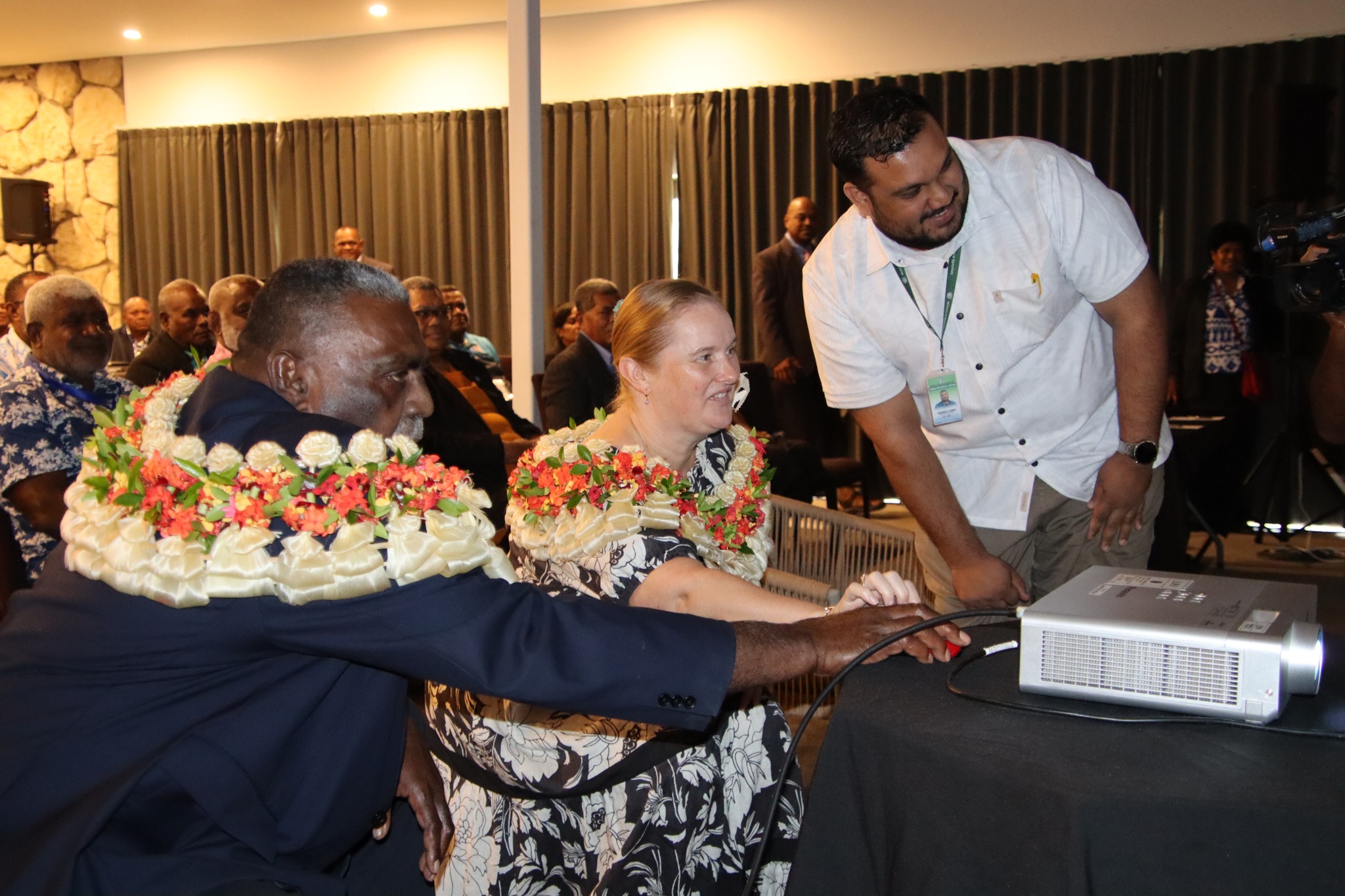FIJI GROWERS AND NZ IMPORTERS MEET TO DISCUSS TRADE
July 28, 2025

Fiji, the Pacific’s largest fresh produce exporter to New Zealand, currently supplies more than 80% of the region’s fresh produce exports — a position that gives the country a distinct strategic advantage in the New Zealand market.
These remarks were delivered by the New Zealand High Commissioner to Fiji, Her Excellency Ms Charlotte Darlow, while opening the Agriculture Mini Trade Forum this morning at the Novotel Convention Centre in Lami.
The two-day forum brings together close to 150 growers, exporters, importers, and stakeholders from the Central, Western, and Eastern Divisions under the theme: “Bridging Markets, Building Futures – Strengthening Fiji’s Domestic and Export Trade Through Market-Led Partnerships and Innovation.”
Ms Darlow acknowledged the strong and growing partnership between New Zealand and the Government of Fiji, especially in co-hosting the event.
“Through the Enhanced Pacific Market Access Partnership (EPMAP), the New Zealand Ministry for Primary Industries has been working alongside the Biosecurity Authority of Fiji (BAF) and the Ministry of Agriculture and Waterways (MoAW) to strengthen Fiji’s biosecurity assurance systems for fresh produce,” she stated.
“This includes ensuring that exports are pest-free and fully compliant with New Zealand’s biosecurity requirements.”
Ms Darlow emphasized the need for a market-led approach, where what is grown and exported is driven by market demand and consumer preferences.
“I am greatly encouraged by the diverse representation here today — from farmers and exporters to government agencies, the private sector, financial institutions, and development partners,” she said.
“It is especially exciting to welcome Pacific Trade Invest and New Zealand-based importers, who are here to provide valuable market insights, highlight export opportunities, and advise on readiness.”
New Zealand’s fresh produce market, valued at NZD $2.7 billion, presents a growing demand that cannot be met locally due to climatic limitations.
“There is a real opportunity for Fiji to supply tropical fruits and vegetables that are not grown in New Zealand, as well as to supplement local production,” Ms Darlow added.
“These exports are essential to rural livelihoods and contribute significantly to the two-way trade goal set by our Prime Ministers — to grow trade to $2 billion by 2030.”
Delivering his keynote address, Assistant Minister for Agriculture and Waterways, Honourable Tomasi Tunabuna, described the Mini Trade Forum as a milestone that marks the official launch of the Fiji Trade Hub — a platform designed to foster sustainable, market-driven, and coordinated trade partnerships.
“The presence of New Zealand-based importers alongside our domestic market representatives is a testament to the strength of our bilateral ties,” said Hon. Tunabuna.
“I sincerely acknowledge our farmers and exporters — the backbone of Fiji’s agriculture and economy. Your commitment gives meaning to policy, drives national development, and shapes our nation’s prosperity.”
Hon. Tunabuna called for inclusive participation, ensuring that the benefits of the forum and trade initiatives reach even the most remote areas.
“We want to see all Fijians — from the Lau Group to the highlands of Naitasiri and Namosi — benefit from improved livelihoods and greater opportunities.”
Over the past four years, the New Zealand Ministry for Primary Industries (MPI) has worked closely with Fiji to enhance its biosecurity and supply chain systems. This collaboration has helped build trust with trading partners and enabled the trade facilitation efforts being showcased at the forum.
Fiji extended its appreciation to New Zealand for the financial and technical support provided throughout the EPMAP programme. A series of pre-forum outreach sessions, conducted across Viti Levu, helped raise awareness, build capacity, and connect with growers and traders.
A standout feature of this year’s forum is the first-ever in-person participation of New Zealand-based importers, facilitating direct business negotiations and stronger market connections.
Both chief guests also acknowledged the valuable support of PHAMA Plus, jointly funded by the Governments of Australia and New Zealand, for co-funding the Mini Trade Forum.
The newly launched Fiji Trade Hub represents a major policy shift — from the traditional “grow first, sell later” approach to a market-led, demand-driven model. By combining digital tools and physical networks, the Hub directly links local producers with buyers using real-time data and market insights.
This initiative aims to empower farmers, exporters, hoteliers, and trade partners by promoting inclusive, coordinated, and sustainable trade practices aligned with market demands.
Fiji’s aspiration to become a leading regional exporter depends on this strategic, demand-responsive approach — one that ensures trade is grounded in real-world needs and future-ready opportunities.
In his closing remarks, Hon. Tunabuna challenged participants to see the forum as the beginning of a transformative journey.
“Let this be the beginning of a new era — one where Fiji’s fields feed not only our people, but the Pacific and beyond. Let trade be not just about goods, but about people, partnerships, and shared prosperity.”
The forum will end tomorrow at the Novotel Convention Centre before it shifts to the Western Division where it will be held in Nadi from Thursday 31st July and Friday 1st August.
-Ends-
